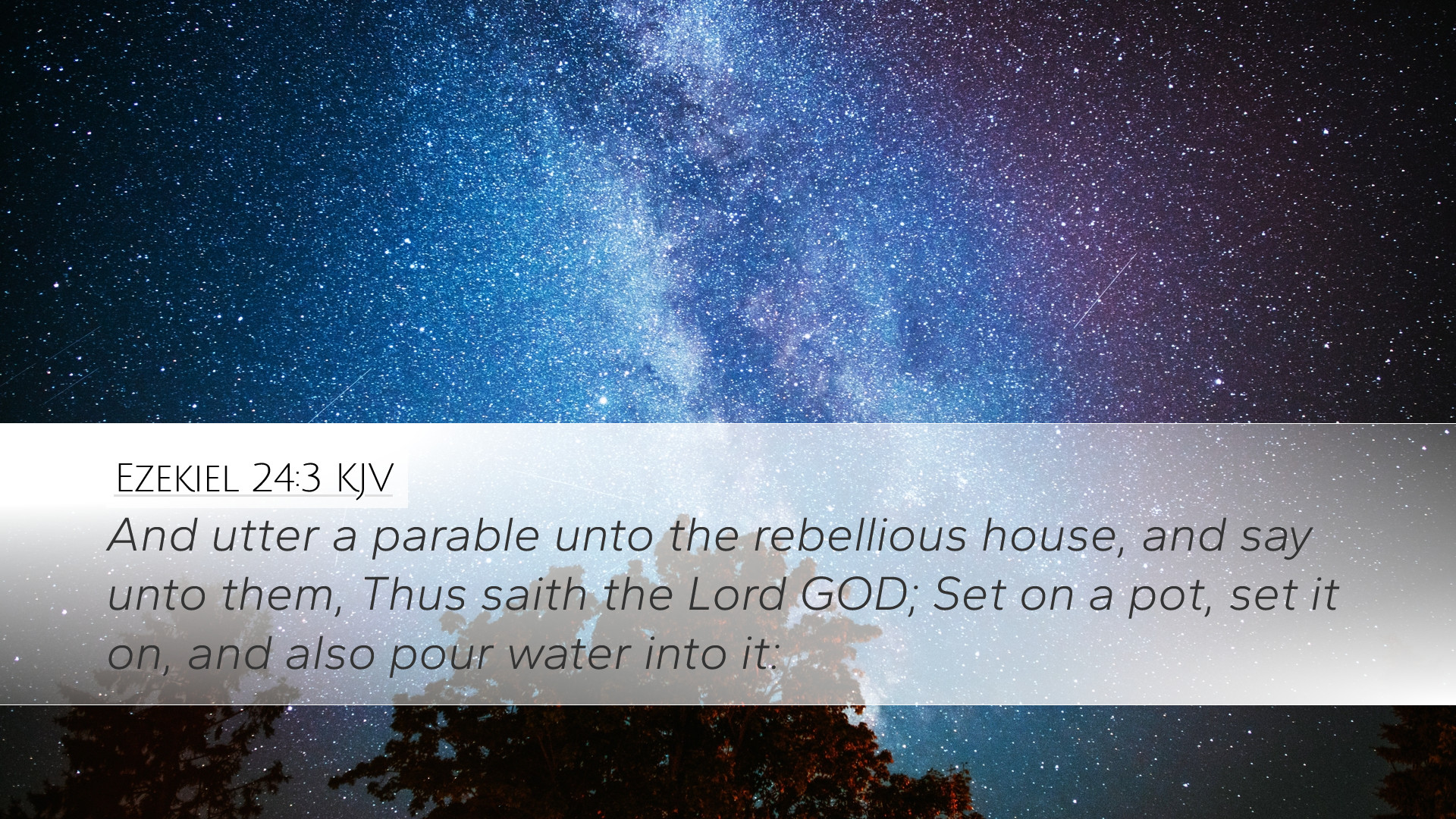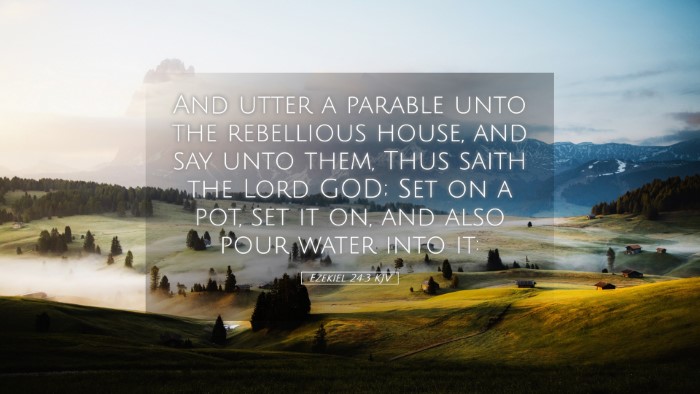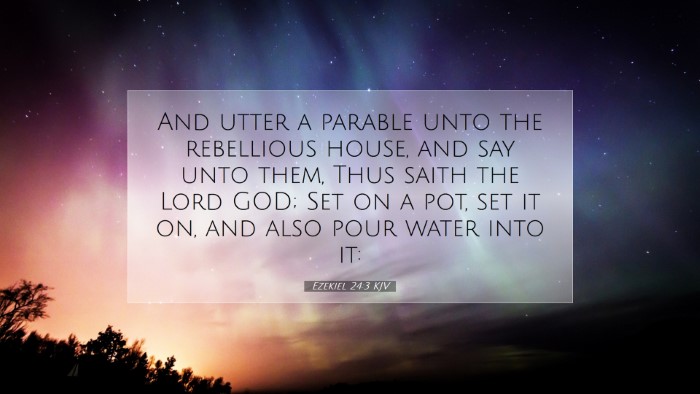Commentary on Ezekiel 24:3
Verse Reference: Ezekiel 24:3 - "And utter a parable unto the rebellious house, and say unto them, Thus saith the Lord GOD; Set on a pot, set it on, and also pour water into it."
Introduction
The prophetic book of Ezekiel carries a weighty message delivered through vivid imagery and parables. In Ezekiel 24:3, the Lord instructs the prophet to use a common household object—a pot—to convey a significant spiritual truth to the people of Israel, who are described here as a "rebellious house." This verse is a critical hinge point in Ezekiel’s prophecies, fulfilling multiple theological and social functions.
The Context of Rebellion
This portion of Ezekiel takes place during a tumultuous time for the nation of Israel, marked by their disobedience toward God and the resulting impending judgment. The term "rebellious house" signifies not merely a preference for sin but a deliberate turning away from God’s commands.
Insights from Matthew Henry
Henry notes that God often uses parables to reach His people in ways that are tangible and relatable. His emphasis on "rebellion" serves to highlight the gravity of the situation. The act of setting on the pot symbolizes the impending judgment, as fire is often representative of divine wrath and purification.
Insights from Albert Barnes
Barnes expounds upon the significance of the pot. The imagery conveys a message of impending destruction and calamity, yet also hope for renewal through the fire of judgment. He interprets the water as representative of the circumstances in which the people live; they are living immersed in iniquity, which will lead to their boiling over in desperation.
Insights from Adam Clarke
Clarke elaborates on the specific elements of the parable. He identifies the pot as a vessel of judgment where the rebellious house—representing the people of Israel—will be gathered. He emphasizes that the pouring of water is not just an act but also a metaphor for the divine grace that can cleanse and prepare for forgiveness, even amidst impending judgment.
Theological Themes
- Divine Judgment: The pot represents the judgment of God, where the sins of Israel are being heated and brought to the forefront.
- Hope of Restoration: Despite the judgment theme, there is an underlying promise that through destruction, there can be renewal and restoration for those who repent.
- God's Patience: This verse reminds the reader of God’s patience and willingness to appeal to stubborn hearts through persistent warnings.
Practical Applications
Pastors and theologians can draw several applications from this verse. It serves as a reminder that God communicates truth through various means and that secular imagery can have profound spiritual significance. The urgent call to repentance and the recognition of divine providence are relevant in today’s context where many may also follow a path of rebellion against God.
Encouragement for Ministry
In ministry, the challenge lies in how best to communicate God’s truths to a rebellious generation. Just as Ezekiel utilized a parable, the contemporary church must find ways to contextualize age-old truths into relatable scenarios. This necessitates creativity while maintaining the integrity of Scripture.
Reflection on Personal Conduct
For individual believers, this verse invites reflection upon their obedience to God. It prompts one to evaluate whether one is contributing to the boiling pot of rebellion or seeking to cool waters of peace and forgiveness.
Conclusion
Ezekiel 24:3 is rich in meaning and offers depth for understanding God’s ways in addressing disobedience. Through the imagery of the pot and water, it encapsulates judgment and grace, invitation and warning. As the church reflects on these truths, they must keep in mind that even amidst rebellion, God’s call to repentance is a sign of His mercy.


